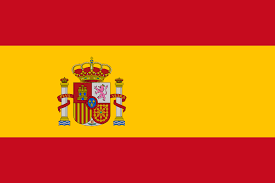
Market Spotlight:
Spain

Factum Scale:
-
Registering a company in Spain can be time-consuming due to bureaucratic hurdles.
The process involves multiple steps, including obtaining a tax identification number (NIF/NIE), registering with the Commercial Registry (Registro Mercantil), and dealing with notary services.
-
Spain ranks moderately in ease of starting a business due to lengthy administrative procedures.
-
Spain has a corporate tax rate of 25%, with additional regional taxes in some areas.
VAT (IVA) is 21%, with reduced rates for essential goods and services.
-
Spain has an open economy with few restrictions on foreign ownership, except in strategic sectors such as defense, energy, and telecommunications.
-
Spain is one of Europe’s top recipients of FDI, particularly in technology, real estate, tourism, and renewable energy.
-
The ICEX (Invest in Spain) agency promotes investment and provides assistance to foreign businesses.Spain is strategically located as a gateway between Europe, Latin America, and North Africa.
-
Its membership in the EU and Eurozone provides businesses with access to the single European market.
-
Bureaucratic inefficiencies can slow down business setup.
-
High social security contributions increase employment costs.
Tariffs & Regulations
Factum Scale:
-
Value-Added Tax (VAT) on Imports: Standard rate: 21% on most goods. Reduced rates: 10% (food, transport) and 4% (basic necessities like bread, books, and medicine).
-
Free Trade Agreements (FTAs): Spain benefits from over 40 FTAs negotiated by the EU, including:
(1) EU-Canada (CETA) – near tariff-free trade; (2) EU-Japan, EU-South Korea, EU-Singapore – enhancing global exports; (3) European Union (EU) Membership: Full access to the EU single market (27 countries) with no internal tariffs. Adopts EU-wide trade policies and agreements; (4) Trade with the U.S.: No free trade agreement but low tariffs on most goods. U.S.-Spain trade focuses on aerospace, pharmaceuticals, agriculture, and energy.
Fluency in English
Factum Scale:
-
According to English Proficiency index. Spain ranks 36/116 countries. And it is 26/35 in Europe.
-
Out of Spain’s population of nearly 50 million people, a little less than one-third can speak English proficiently. While this might seem alarming, a higher concentration of English speakers is in major urban centers and tourist hotspots.
Society, Culture, and Business Etiquette
Factum Scale:
-
The Spanish take a very relaxed approach to punctuality. It’s ok to show up right on time or a few minutes late, as the whole country is very laid back time-wise; but punctuality is still valued in Spanish business culture.
-
Spain is known for its stylish and fashionable culture, and this extends to the business world. Dressing professionally reflects your seriousness and respect for the business environment.
-
Relationship-building is extremely important in Spain. Establishing a personal connection is highly valued in Spanish culture, which is why greetings should not be rushed.
-
Meals are a cornerstone of Spanish culture and an integral part of business relationships. Spaniards love to dine long and late, with business dinners typically starting around 9:00 pm and lunches starting around 3 pm and going until late in the evening
Economic Stability
Factum Scale:
-
Regional political tensions, particularly in Catalonia, may affect business stability.
-
Economic cycles tied to tourism can make certain sectors vulnerable to downturns.
-
Tourism is A major contributor (over 12% of GDP) with record-breaking visitor numbers in 2023.
-
Spain benefits from its EU membership, strong trade relationships, and a diverse economic base. However, challenges such as inflation, high public debt, and labor market rigidities remain.
-
Strategic location and Mediterranean climate support strong agricultural exports.
-
Spain’s year-on-year inflation rate, measured by the Harmonized Index of Consumer Prices (HICP), reached 2.8% in December 2024, according to the National Statistics Institute (INE).
-
Despite bureaucratic hurdles and labor market rigidity, Spain remains an attractive destination for business and investment: The country is moving toward a more sustainable, tech-driven economy, supported by EU funds and structural reforms.
Labor
Factum Scale:
-
The Spanish labor market remains a challenge, with relatively high unemployment (11-12% in recent years), particularly among youth.
-
Annual salaries range from €27,000–€30,000, with variations by industry and region. Higher wages are earned in Madrid, Catalonia, and the Basque Country.
-
Minimum wage 1,323 per month as of 2024. One of the highest minimum wages in Southern Europe.
-
As of 2023, the social security rate in Spain is 36.85%. The employer pays most of this: the employer pays 30.4% of the employee’s wage, and the employee pays the remaining 6.45%.
-
Spain has the highest monthly social security contribution rate in the EU.
-
Labor Force Participation Rate: ~59-60% (lower than the EU average).
-
Unemployment: 11-12% in 2024, still one of the highest in the EU.
-
Youth unemployment remains a major issue (~27-30% for those under 25).
-
The total workforce is approximately 23 million.
Business Structures
Foreign operators and investors have a variety of business structures to choose from in establishing a business in Spain, including:
-
A Sole Proprietorship (Autónomo)
-Best for: Freelancers, small business owners.
-Legal Personality: No separation between the owner and the business.
-Liability: Unlimited personal liability for debts.
Requirements:
-Spanish tax ID (NIE for foreigners).
-Register with Social Security and the tax authority.
Pros: Easy setup, low maintenance.
Cons: High social security costs (~€300/month), full personal liability. -
Limited Liability Company (Sociedad Limitada – SL)
-Best for: Small to medium businesses, startups, and foreign investors.
-Legal Personality: Separate from owners.
-Liability: Limited to the company’s capital.
Requirements:
-Minimum capital: €3,000 (fully paid at registration).
-At least one director and shareholder (can be foreign individuals or companies).
-Spanish tax ID (NIF) for the company.
-Register with Mercantile Registry & Tax Authority.
Pros: Limited liability, low capital requirement, flexible structure.
Cons: More bureaucracy than a sole proprietorship, annual financial statements required.
Most common choice for foreign businesses setting up in Spain.
-
Public Limited Company (Sociedad Anónima – SA)
-Best for: Large businesses, companies seeking investment.
-Legal Personality: Separate from owners.
-Liability: Limited to company capital.
Requirements:
-Minimum capital: €60,000 (at least 25% paid at incorporation).
-At least one shareholder (can be foreign).
-Board of Directors required if capital exceeds €300,000.
Pros: Can issue shares publicly, good for large-scale operations.
Cons: Higher capital requirement, stricter compliance and reporting.
-
Branch Office (Sucursal)
-Best for: Foreign companies expanding into Spain without forming a new entity.
-Legal Personality: Not separate from the parent company.
-Liability: Parent company fully responsible for debts.
Requirements:
-Parent company documents legalized and translated.
-Appoint a legal representative in Spain.
-Register with the Mercantile Registry.
Pros: Operates like a local business, but directly connected to HQ. -
Representative Office (Oficina de Representación)
-Best for: Market research, business promotion (not commercial activity).
-Legal Personality: No separate legal entity.
-Liability: Parent company is responsible.
Requirements: Minimal registration, tax ID for operations.
Pros: Simple setup, no tax obligations if no business activity.
Cons: Cannot generate revenue or sign contracts.
Business Landscape
-
Spain’s economy is largely driven by private enterprises, with small and medium-sized enterprises (SMEs) dominating the market. While state-owned enterprises (SOEs) exist, they play a smaller role compared to other EU countries
-
SMEs make up 99.8% of all Spanish businesses and employ around 75% of the workforce.
-Micro-enterprises (0-9 employees): ~93% of businesses.
-Small enterprises (10-49 employees): ~5.7%.
-Medium enterprises (50-249 employees): ~1.1%.
-
Reduced corporate Tax for New Startups: 15% for the first two years of profitability.
-
Competitive tax rates & incentives attract foreign businesses.
Notable Institutions
-
Ministry of Industry, Trade, and Tourism (Ministerio de Industria, Comercio y Turismo – MICT): Oversees trade policies, industrial development, and foreign investments; Provides market research, trade incentives, and industrial policy guidance
-
Spanish Tax Agency (Agencia Tributaria – AEAT): Handles corporate taxation, VAT, and foreign business tax compliance; Provides tax benefits for R&D, startups, and new investors.
-
Spanish Companies Register (Registro Mercantil): Handles company incorporation and legal registration; Ensures compliance with commercial laws.


